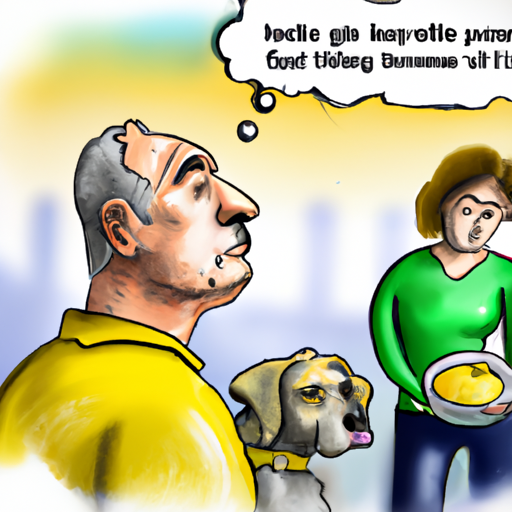As a dog parent, it can be alarming to see your beloved pet vomit yellow bile. This is a common issue among dogs but can be quite distressing for both the pet and the owner. While it’s essential to consult with your vet, understanding the possible causes can help you navigate this situation better.
- Key Takeaways
- Yellow bile in dogs is typically a result of an empty stomach.
- There are several possible causes, including gastrointestinal diseases and dietary issues.
- Treatment varies based on the underlying cause.
-
Preventative measures can help reduce the frequency of this issue.
-
Table of Contents
- Possible Causes of Yellow Bile Vomit in Dogs
- How to Treat Yellow Bile Vomit in Dogs
- Preventative Measures
- Frequently Asked Questions
Possible Causes of Yellow Bile Vomit in Dogs
Bile is a digestive fluid produced in the liver and stored in the gallbladder. It aids in the digestion of fats. When a dog vomits yellow bile, it generally indicates that the dog’s stomach is empty. Here are some reasons why this might occur:
- Bilious Vomiting Syndrome (BVS): This is a chronic condition where a dog vomits bile, especially during morning hours or late at night. It’s thought to be caused by the buildup of acid in an empty stomach, which irritates the stomach lining. More on BVS can be found here.
- Gastrointestinal Diseases: Conditions like inflammatory bowel disease, pancreatitis, and gastrointestinal ulcers can also cause a dog to vomit yellow bile.
- Dietary Issues: Overeating, consuming high-fat foods, or eating too quickly can lead to vomiting.
- Ingesting Foreign Objects: Dogs often swallow items that their bodies cannot digest such as toys, socks, or bones. This can result in vomiting.
| Causes | Symptoms | Treatment |
|---|---|---|
| BVS | Chronic vomiting, especially in the morning or late at night | Dietary modification, medication |
| Gastrointestinal diseases | Vomiting, diarrhea, loss of appetite | Based on specific condition |
| Dietary issues | Vomiting, possible diarrhea | Dietary modification |
| Ingesting foreign objects | Vomiting, possible abdominal pain | Surgical removal of the object, if necessary |
How to Treat Yellow Bile Vomit in Dogs
The treatment for a dog vomiting yellow bile largely depends on the underlying cause. In most cases, it can be managed effectively with dietary modifications and medication. Your vet may recommend feeding your dog smaller, more frequent meals throughout the day to prevent the buildup of acid.
For dogs with BVS, antacids or other medications may be prescribed to reduce stomach acidity. If a gastrointestinal disease is the cause, your vet will recommend specific treatment based on the condition.
In situations where your dog has ingested a foreign object, immediate veterinary attention is crucial. Depending on the object and its location, surgical intervention may be necessary.
Preventative Measures
Preventing your dog from vomiting yellow bile involves addressing the underlying cause. Here are some general steps you can take:
- Feed your dog small, frequent meals.
- Avoid high-fat foods and ensure your pet has a balanced diet.
- Discourage rapid eating by using slow-feeder bowls.
- Regularly check your dog’s environment and remove any potential foreign objects.
Frequently Asked Questions
-
Can yellow bile vomit in dogs be prevented?
Yes, in many cases, it can be prevented by addressing the underlying cause, such as dietary modifications or medication. -
Should I be worried if my dog vomits yellow bile once?
While occasional vomiting may not be a cause for concern, frequent or chronic vomiting should be evaluated by a vet. -
What should I do if my dog vomits yellow bile?
First, don’t panic. Consult with your vet to determine the cause and appropriate treatment.
For more on dog health, check out these resources:
* What You Should Know About Your Dog’s Food
* Why Regular Check-Ups are Important
* Common Health Issues in Dogs
Remember, while this guide provides valuable information, it’s crucial to consult with your vet for accurate diagnosis and treatment. Together, you can ensure your dog leads a healthy and happy life.



